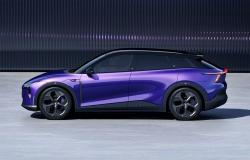Every week, our journalist answers scientific questions from readers.
Published at 7:00 a.m.
Do electric cars, which are heavier, cause more damage to the road?
Ginette Leblanc
Electric cars will not cause much more damage to roads overall, since trucks cause 90% to 95% of the damage. But on some residential streets with little traffic, they could make a difference.
“Electric cars do indeed cause more damage, but still much less than a heavy goods vehicle,” summarizes Alan Carter, professor of civil engineering at the École de Technologie Supérieure (ETS).
For big roads, it doesn’t make a difference. On the other hand, there are municipal roads with low traffic where there are no heavy goods vehicles [qui circulent]. In this case, it will shorten the lifespan of the pavements.
Alan Carter, professor of civil engineering at the École de Technologie Supérieure
Mr. Carter gives the example of a Chevrolet Bolt, an electric car that weighs 1,670 kg, and a Toyota Corolla, a gasoline car that weighs 1,285 kg. This 30% weight difference gives an “aggressiveness coefficient”, i.e. a capacity to damage the road, 2.8 times greater (180%) than the Bolt.
“It could have an effect on the lifespan of a roadway,” says Mr. Carter.
The impact of vehicle weight, calculated per axle, is much greater than just the difference in weight. A heavy-duty truck, with the maximum allowable load of 9,000 kg on the front axle, will cause 6,500 times more damage than an F-150 pickup truck with 1,000 kg per axle, explains Mr. Carter.
Thus, for a residential street in which trucks represent 1 passage in 1000, they would cause 87% of the damage, compared to 13% for cars.
“We are more worried about electric trucks because of their weight, but also because of the possibility that they travel in convoy, like a large road train,” points out Mr. Carter of the ETS. A convoy gives the roadway less time to relax between the induced stresses, therefore could cause ruts more quickly than the same trucks which are not in a convoy. »
Tires, collisions and noise
The impact of transportation electrification on road damage is not the only point of interest for researchers. They are also trying to see how the phenomenon will alter atmospheric and noise pollution, as well as the risk of accidents.
“Contrary to what one might think, there will be no miraculous effect on pollution,” explains Jean Schmitt, of the Georgia Institute of Technology (Georgia Tech), who published a study on the subject this fall in the scholarly journal PNAS.
Above a certain speed, the noise of a car is linked to its interaction with the road, and not to its engine. The noise should therefore not decrease. And around a quarter of a car’s pollution, in terms of fine particles, is created by tire wear.
Jean Schmitt, Georgia Institute of Technology
It will therefore be necessary to make efforts to reduce the particles emitted during tire wear. “It’s complicated by the fact that electric cars are powerful,” says Ray Galvin, of the University of Cambridge, who published a study on the weight of electric cars in 2022 in the scholarly journal Energy Policy.
“People tend to use this power. This creates more tire wear. And it also underestimates the demand for car charging on the electricity network, which is already overloaded by this new demand. »
As for accidents, the excess weight of electric cars will worsen the severity of collisions, warns Mr. Galvin. Last year, the head of the United States Transportation Safety Board (NTSB) sounded the alarm on this point, giving the example of the electric Hummer, whose battery is almost as heavy as a Honda Civic gasoline.
Do you have a scientific question? Write to us
Learn more
-
- 1330 kg
- Electric Hummer battery weight
Source : NTSB
- 1400 kg
- Weight of a gasoline Honda Civic
Source : NTSB





